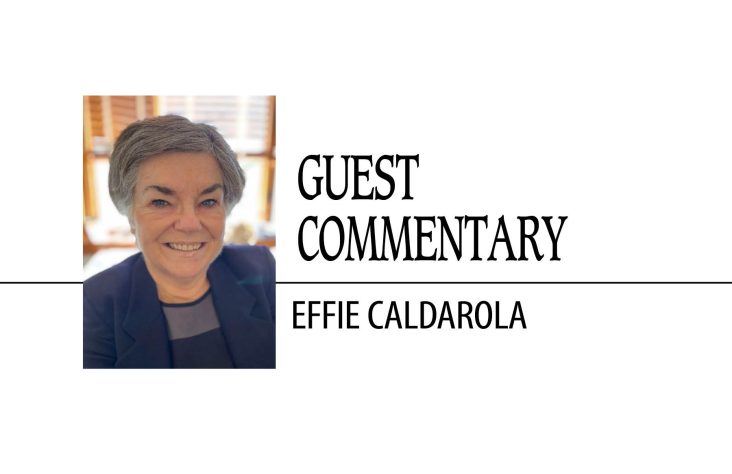April 18, 2012 // Uncategorized
‘God is Love,’ a theological feast
Recently, I went back to school for three days. After all, the status of “emeritus” should afford some advantage. The Institute for Church Life at Notre Dame sponsored a convocation entitled, “God is Love: Explorations in the Theology of Benedict XVI.” Over three days, some of the finest Catholic theologians in the world presented different aspects of the teaching of Pope Benedict. It was truly a theological feast and I was moved by the dedication of the presenter to the teaching of Josef Ratzinger, now Pope Benedict XVI.
I first discovered the theological writings of Father Josef Ratzinger when he was a young theologian teaching at Tübingen and I was preparing a course on faith, which I gave over many years in the 1970s at Saint John’s Seminary in Brighton, Mass. I read a book entitled, “Introduction to Christianity,” which has become for many a kind of classic. It was a series of lectures he gave to university students. What struck me most was Father Ratzinger’s understanding of the difficulties modern man experiences in surrendering to a life of faith. His clarity about the gift of faith, its challenges and its strengths, was striking. Here is a thought-provoking reflection by this young priest-theologian:
“Just as the believer knows himself to be constantly threatened by unbelief, which he must experience as a continual temptation, so for the unbeliever, faith remains a temptation — a threat to his permanently closed world — in short, there is no escape from being a man.”
Pope Benedict said in a recent interview that Pope John Paul II liked this book and implied it was responsible for his calling Cardinal Ratzinger to Rome to serve near him at the Congregation for the Doctrine of the Faith. It was there that I had the great privilege of meeting the then Cardinal Ratzinger and getting to know him during the various visits “ad limina apostolorum” (“to the threshold of the apostles”). It was my privilege to visit with him at some length four times during his service at the Congregation for the Doctrine of the Faith and twice more briefly during his time as pope.
However, I must say that my early contact with the writings of this extraordinary theologian were minimal indeed compared to the wide-ranging presentations given over three days at Notre Dame. There were 11 presentations, and I was able to attend 10 of them. “Dictatorship of Relativism,” a term that Cardinal Ratzinger used in a homily just before he was elected pope, was the keynote. Also, we studied the influence of St. Augustine on Pope Benedict and examined the book already referred to: “Introduction to Christianity.”
The following were among the wide-ranging presentations, Pope Benedict XVI and non-Christian religions, especially Buddhism. Mary in the theology of Joseph Ratzinger. Papal Ecclesiology as understood by Pope Benedict. Culture and Conscience in the thought of Joseph Ratzinger. There was also a talk given by a professor of economics from Milan on Catholic Social Teaching as presented by the Holy Father in his recent encyclical “Caritatis in Veritate” (“Unity in Truth”) and a moving address entitled, “Faith, Reason and Reconciliation, a Benedictine Politics for an Age of Upheaval.”
We heard a wonderful presentation on the pope’s teaching on the Eucharist. I recalled as I listened Professor Larry Cunningham telling me at the time of Pope Benedict’s election that he believed Pope Benedict was the greatest theologian to sit on the Chair of Peter since Pope Gregory the Great.
The University of Notre Dame and its Institute for Church Life deserve great credit for presenting such an in-depth view of the teaching of Joseph Ratzinger over 60 years. All the articles will be collected and placed in a book to be published by the University of Notre Dame Press, and a copy will be presented to the Holy Father for his 85th birthday.
I attended this symposium out of my respect for two men. First, Pope Benedict XVI, a Catholic theologian of extraordinary accomplishment and distinction and as the world is now learning a holy and courageous pastor. I have also found him insightful about the nature of the priestly vocation. When I preach retreats to priests, I always make available two outstanding articles he wrote on the priesthood many years ago. More recently, I share his “Letter to Priests,” written at the outset of the Year for Priests and his homily at the closing Mass for that year with 15,000 priests concelebrating in St. Peter’s Square.
The second person, who drew me to this event is John Cavadini, former chair of the Theology Department at Notre Dame and now the director of the Institute for Church Life. He is the one who initiated this event. I believe it is his intent to present a book containing these presentations to the Holy Father for his 85th birthday; and he has already received a letter of appreciation from the Holy See expressing the appreciation of the pope for this splendid seminar so appropriate for a Catholic university.
The best news. Delivered to your inbox.
Subscribe to our mailing list today.





